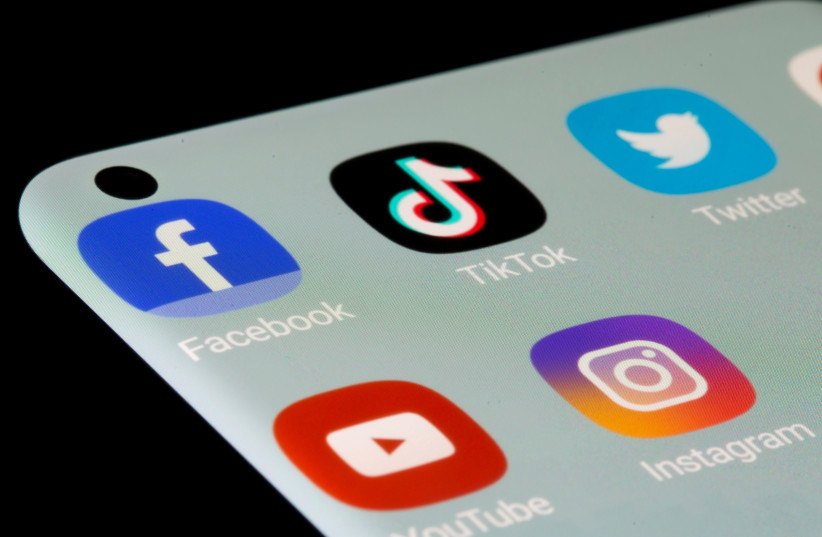A new survey by the Israel Internet Association published Monday morning and conducted by the "Mindpool" research institute reveals online harm to quite a few Israelis on the internet, including hatred, harassment, exposing of intimate details and violent discourse.
The survey data also showed that harmful discourse affects people on the internet and causes many to avoid discourse and expressing opinions online altogether.
22% of Israelis testified that they personally experienced swearing and abuse on social networks during the past year, while 18% of Israelis testified that they personally experienced surveillance or harassment over the same time.
Nearly one in ten Israelis (9%) testified that intimate or embarrassing photos of themselves were distributed without their permission. Further, no significant differences were found between men and women in the answers to the questions.
What social media sites are the most hateful?

82% of Israelis who were exposed to hate speech online said Facebook was the social network where the most instances occurred. Other platforms where Israelis encountered hatred online were WhatsApp at 26%, Instagram at 24%, Twitter at 17%, Tiktok at 16%, and YouTube and Telegram at 9%.
Over half of respondents (52%) claimed that the discourse in the online space is "violent to a great extent/very great extent," while over a quarter of respondents (27%) claimed that it is "moderately violent." Just 15% of the public said they don’t believe that online discourse is violent.
Women also said they experienced more violence online – 58% of women answered that online discourse was "violent to a great extent/very great extent."
According to Israelis, the social groups most frequently attacked online in the past year are the Arab society and the ultra-orthodox society (33%), followed by women and girls (27.5%), the LGBT community (23.7%), and immigrant groups such as Russians and Ethiopians, refugees, and migrant workers (roughly 6.5% for each cohort).
Many in the Israeli public (42%) said they avoid posting on the networks or expressing an opinion online due to fear of a violent or offensive reaction “often or very often.” 31.1% said they avoid posting “occasionally or rarely.”
Interestingly, the survey discovered that the majority of the public (55%) does not believe that platforms will work to remove violent content – and therefore, many refrain from reporting harmful content, even if it violates the terms and conditions of a particular social network. 40% of survey respondents said they “rarely” use reporting mechanisms available on social networks, while 38% said they do not use the mechanisms at all.
What influence do politicians have on toxic discourse?
64% of the public said the content that Knesset members and elected officials have a very negative effect on the general discourse on the Internet (39% believe that it has a very negative effect, 24% believe that it has a slightly negative effect ). 15.5% answered that they do not know, while just 12.1% believe that there is no effect and only 9.4% said politicians had a positive effect on discourse.
"The survey data overwhelms the fact that the Internet reflects the public's feelings that general violence and online violence affect our lives in a tangible way,” Orna Hailinger, director of the Israel Internet Association's Netika Center for Optimum Use of the Internet, said following the survey findings. “The public points to politicians as a major factor that affects the discourse on the one hand, though on the other hand we maintain it is up to politicians to lead the change.”
“There is no doubt that we are all required to take part in the ceding of this type of discourse. Both as individuals and as adults who are supposed to set a personal example for young people, these are the key parameters that will ultimately affect the various platforms that have become a violent – and sometimes dangerous – sphere."
